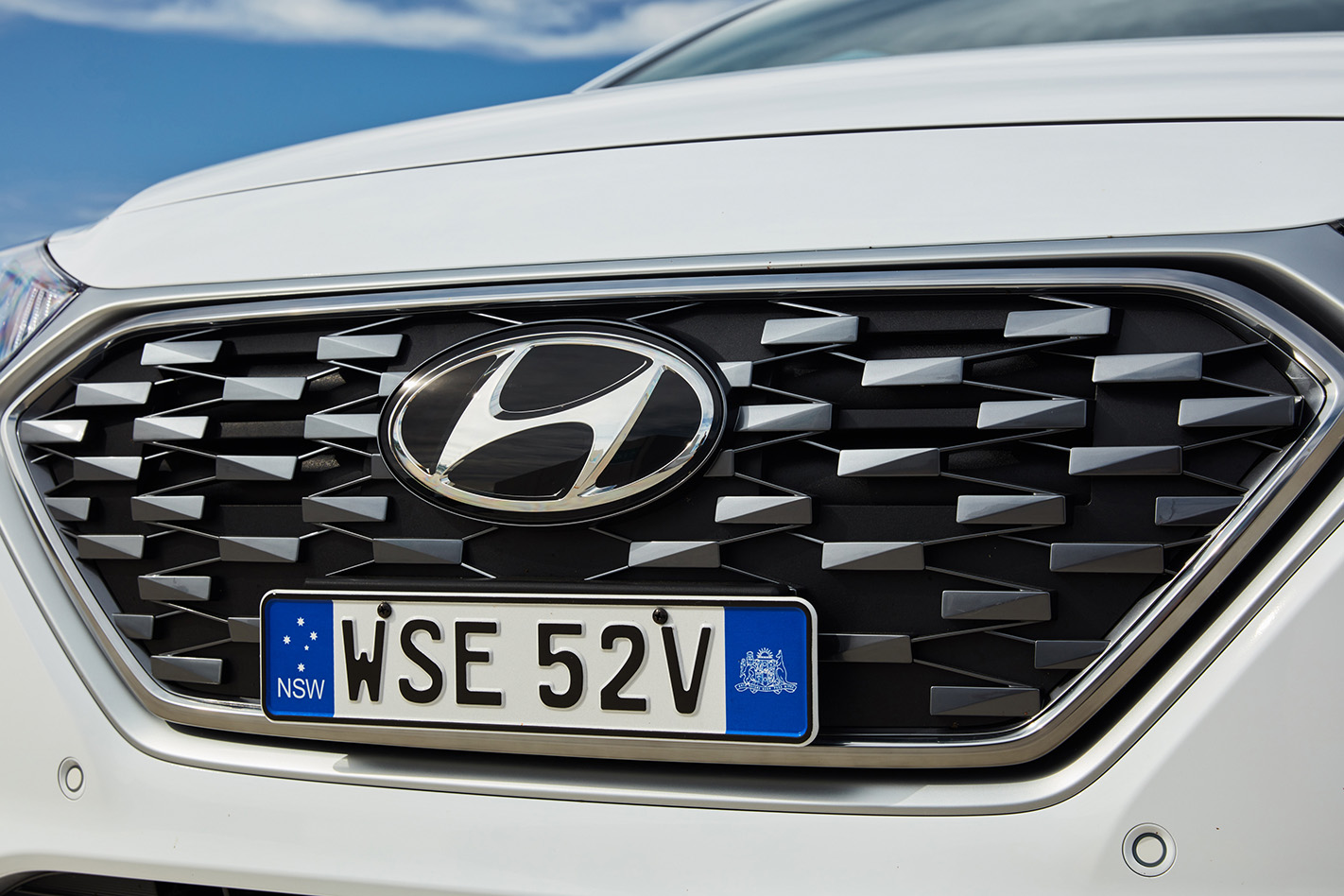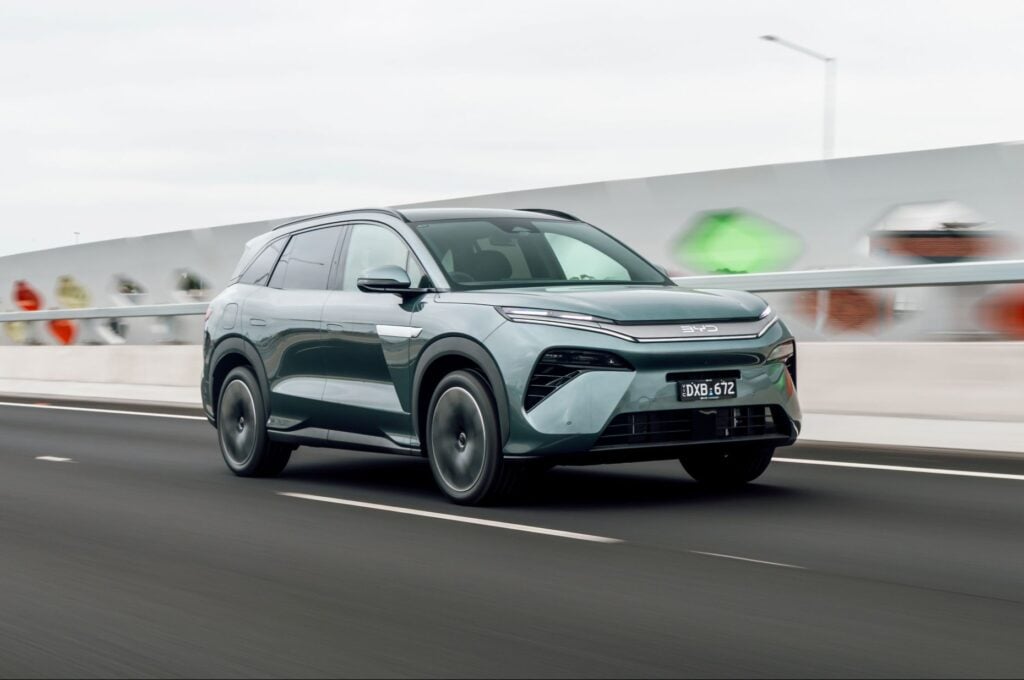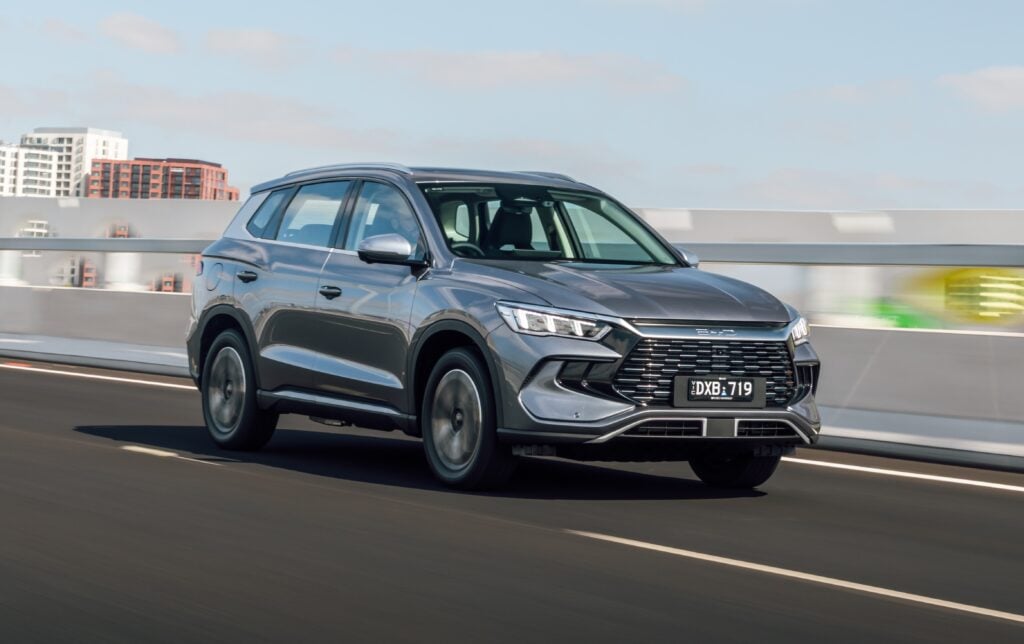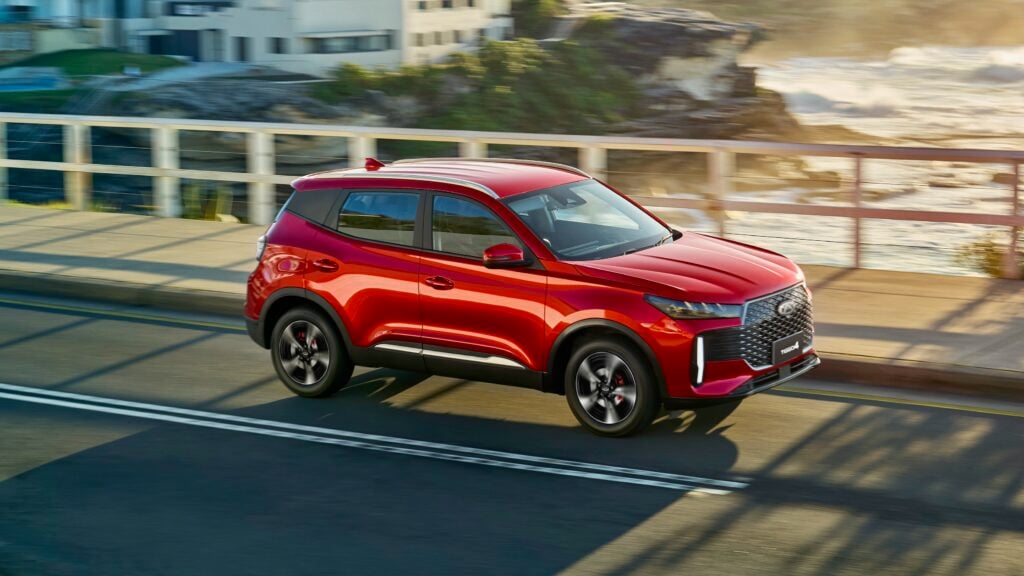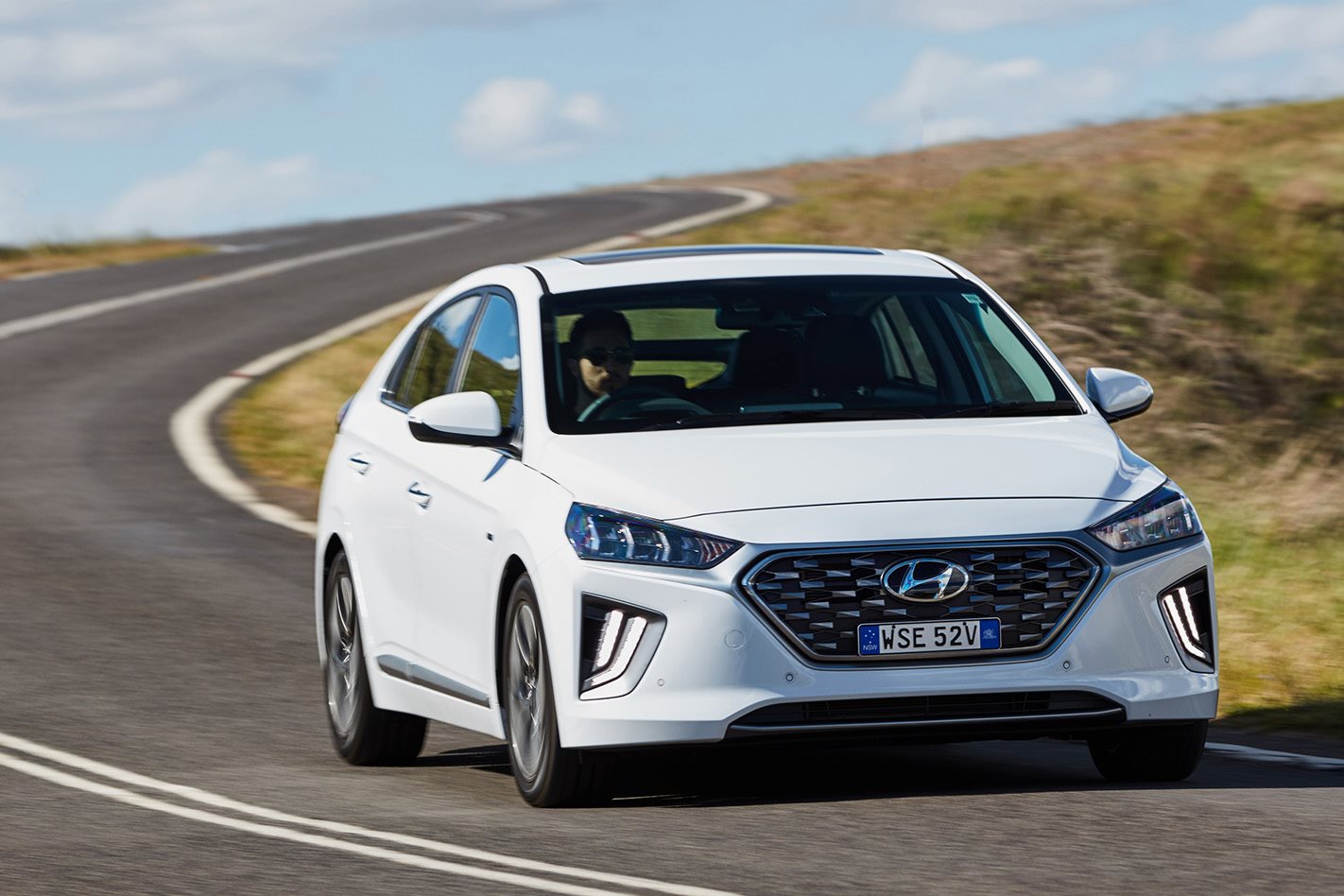
What is it?
It hasn’t taken long, but Hyundai has wheeled out a fairly substantial facelift for its electrified hero the IONIQ, which only launched in Australia in late 2018. After roughly a year in the market, the entire IONIQ range has been gifted with a sharper, less blobby face and a significantly more modern-looking dashboard, delivering a significant boost in aesthetic appeal in the process.
The entrypoint to the IONIQ range is a self-charging hybrid analogous to Toyota’s Prius, priced at $34,790 for the base Elite grade and rising to $39,990 for the Hybrid Premium we have here. That’s just over $4K less than what Toyota asks for its similarly-specified Prius i-Tech, but does the Hyundai option have more than pure value going for it?
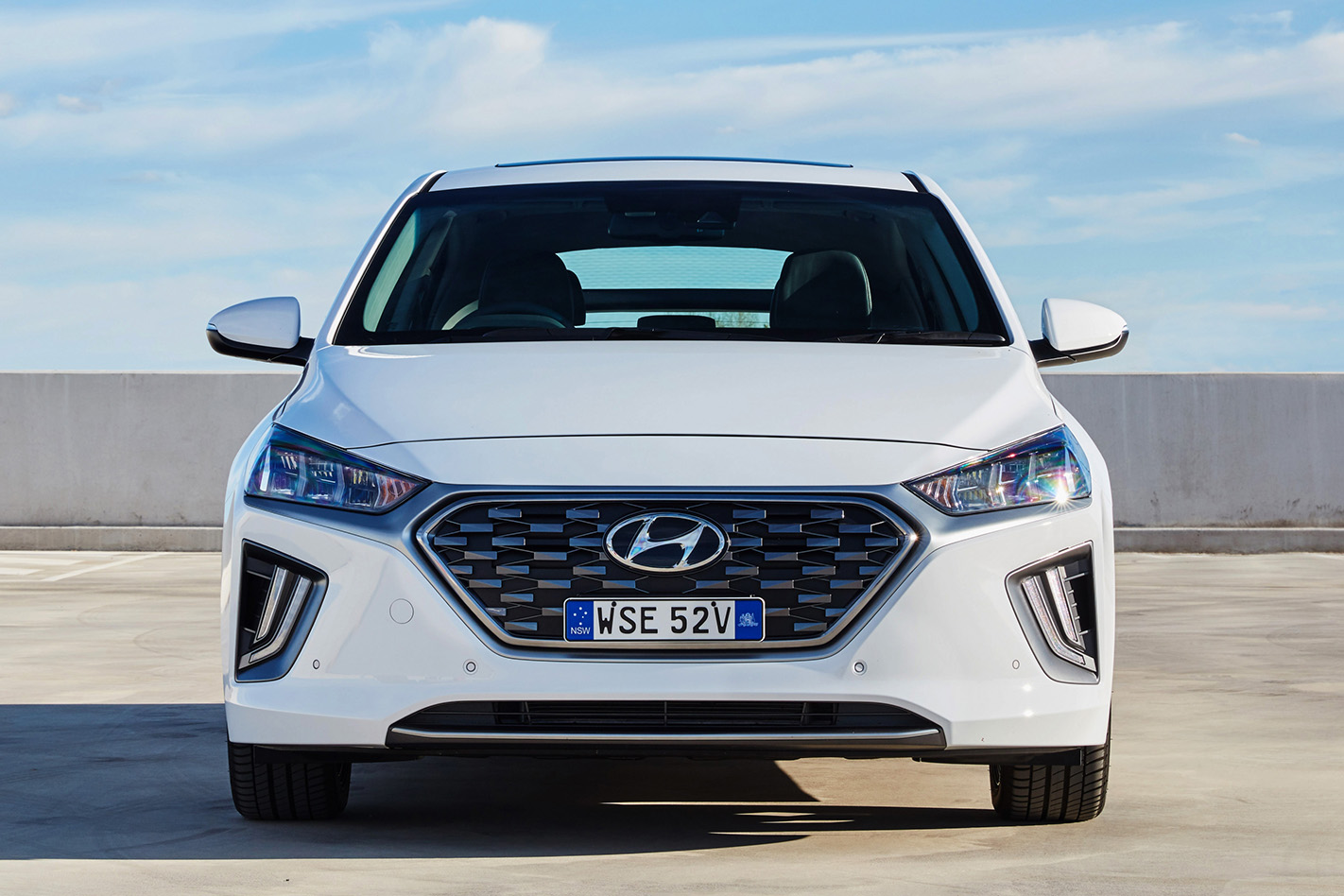
What’s it like to drive?
It may not have the outright eco-glamour of the battery-electric Ioniq – or even the plug-in hybrid that sits between – but the IONIQ Hybrid has three critical advantages: it’s dead easy to drive, you don’t have to charge it, and it’s more affordable than its bigger-batteried siblings.
It’s also got a meaningful amount of zip, especially if you’re going to line it up against its most logical rival: the Toyota Prius. While the Prius makes do with 90kW and 142Nm from its petrol/electric powertrain combo the IONIQ Hybrid has a healthier 104kW of power and 265Nm of torque, and yes, we know the whole idea behind a hybrid is to burn less fuel rather than drive more quickly, but having more power certainly makes it a more relaxed machine to pilot.
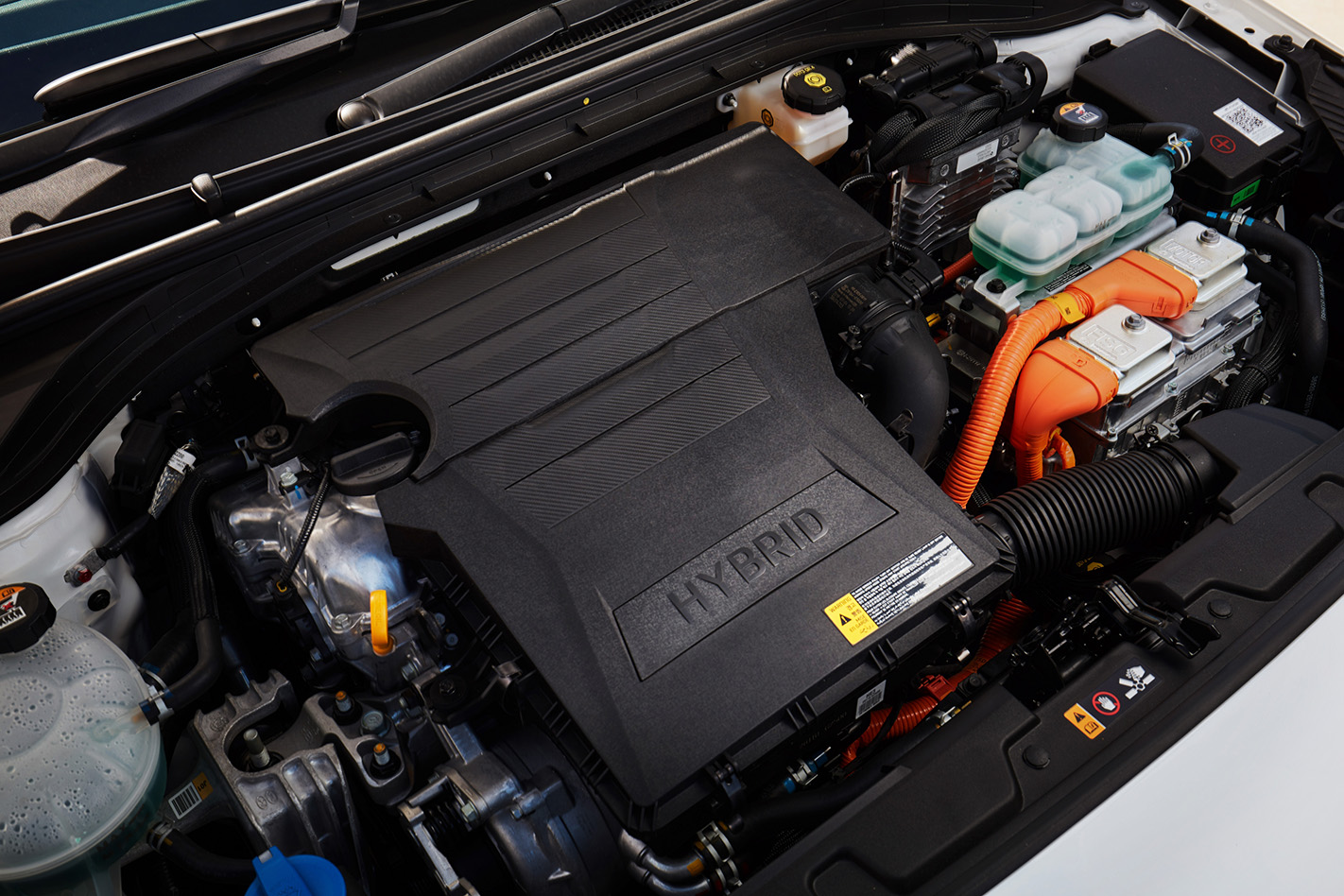
Naturally there’s a trade-off in fuel consumption, with the IONIQ’s stated average of 3.9 L/100km being half a litre behind the Prius’ 3.4 L/100km claim. Even so, that’s still great efficiency in anyone’s language, and we came appreciably close to it during our week-long test drive with an average of 4.3 L/100km.
It’s not the most linear power delivery, though. While it’s quite smooth under gentle acceleration, the IONIQ Hybrid prefers to keep its combustion engine dormant if there’s plenty of charge in its high-voltage battery and you must give the accelerator a fair shove if you want the full 104kW it’s capable of.
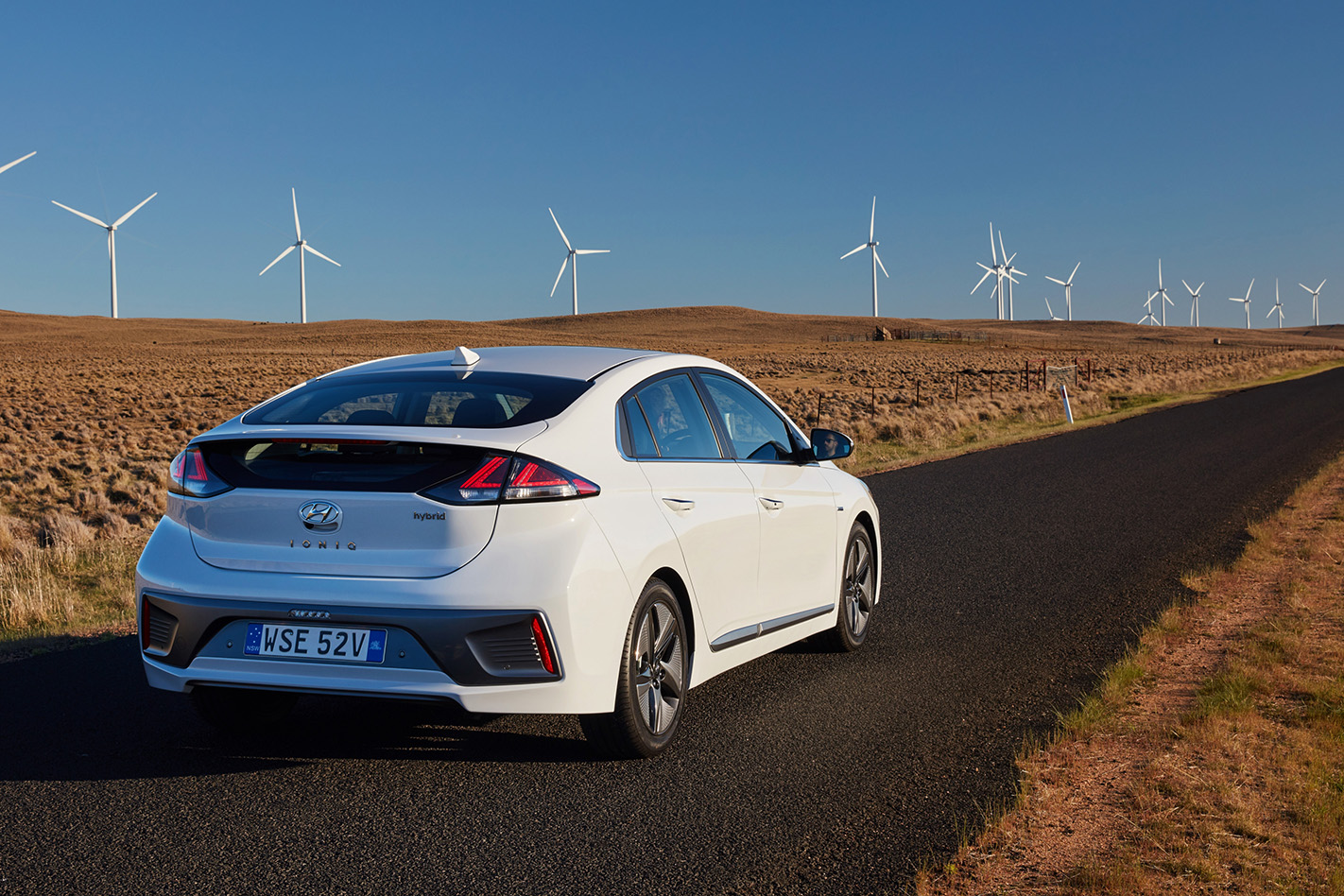
Once the engine wakes up the transmission then seems to take a moment to recalibrate to the extra urge that’s on tap and select an appropriate gear, which can make sudden demands for more power result in a jerky response. While many hybrids tend to use CVT gearboxes (which are known for rubber-band-like shifts), the sharply stepped nature of the IONIQ’s six-speed dual-clutch automatic does introduce some refinement compromises.
There are no such compromises with regard to ride comfort. As with all Hyundai Australia vehicles, the IONIQ has a locally-tuned suspension to help it deal with Australian roads, and those unique spring and damper settings work great around town to iron out bumps even on the IONIQ Premium’s 17-inch alloy wheels (the base grade Elite gets 15-inch wheels with more rubber in their sidewalls).
Couple that with reasonably good sound suppression to help mask when the engine is running, and the IONIQ hybrid’s driving experience when cruising is quite pleasant.
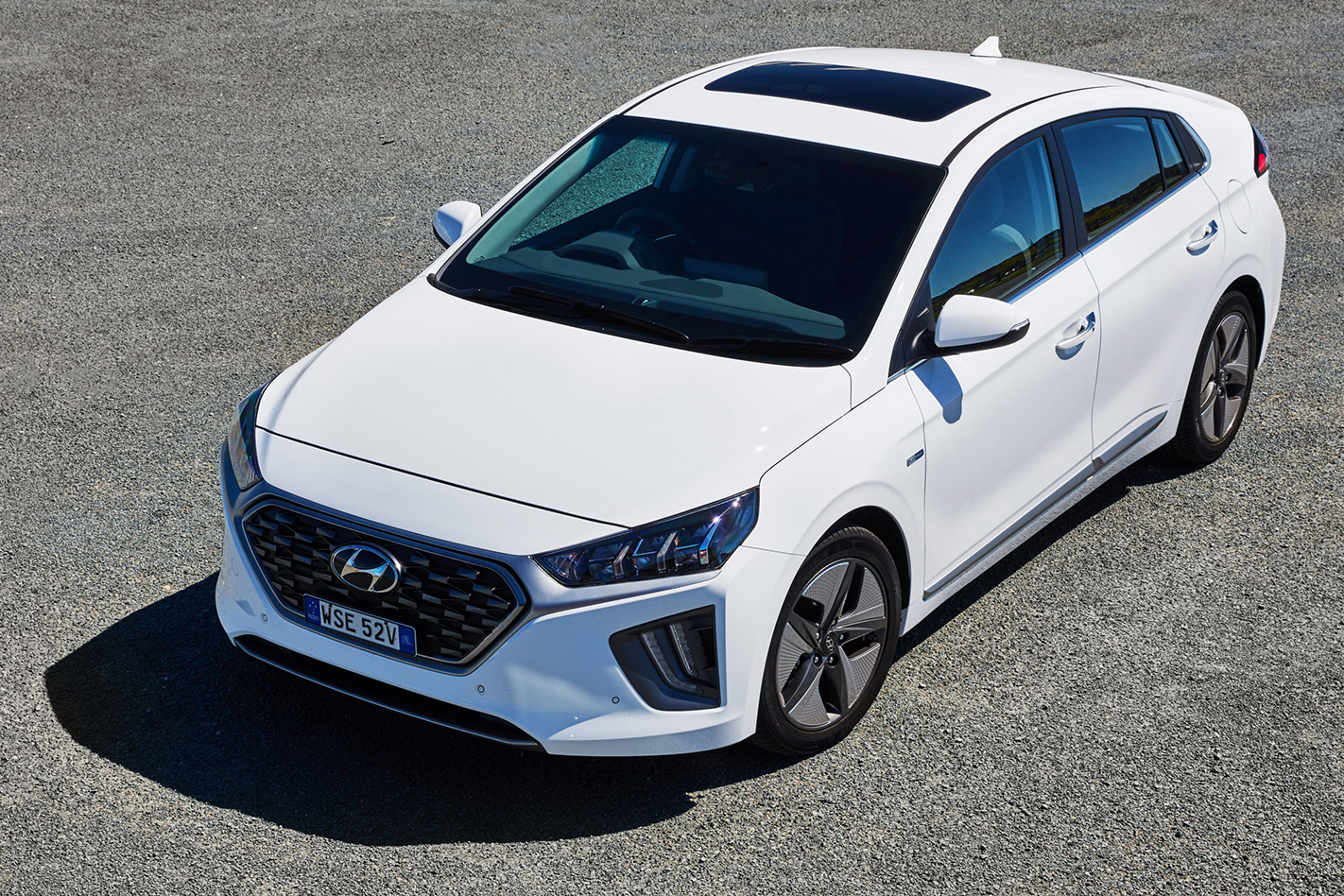
What’s it like to live with?
Besides scoring a sharper look on the outside, the 2020 IONIQ also gained a greatly improved dashboard on the inside, with a 10.25-inch colour touchscreen infotainment system forming the centrepiece.
It’s a big improvement over the 8.0-inch display of the pre-update IONIQ, with great touch response and bright, clear, easily-legible graphics. With support for Android Auto and Apple CarPlay, there’s also scope to gain added functionality through smartphone mirroring as well.
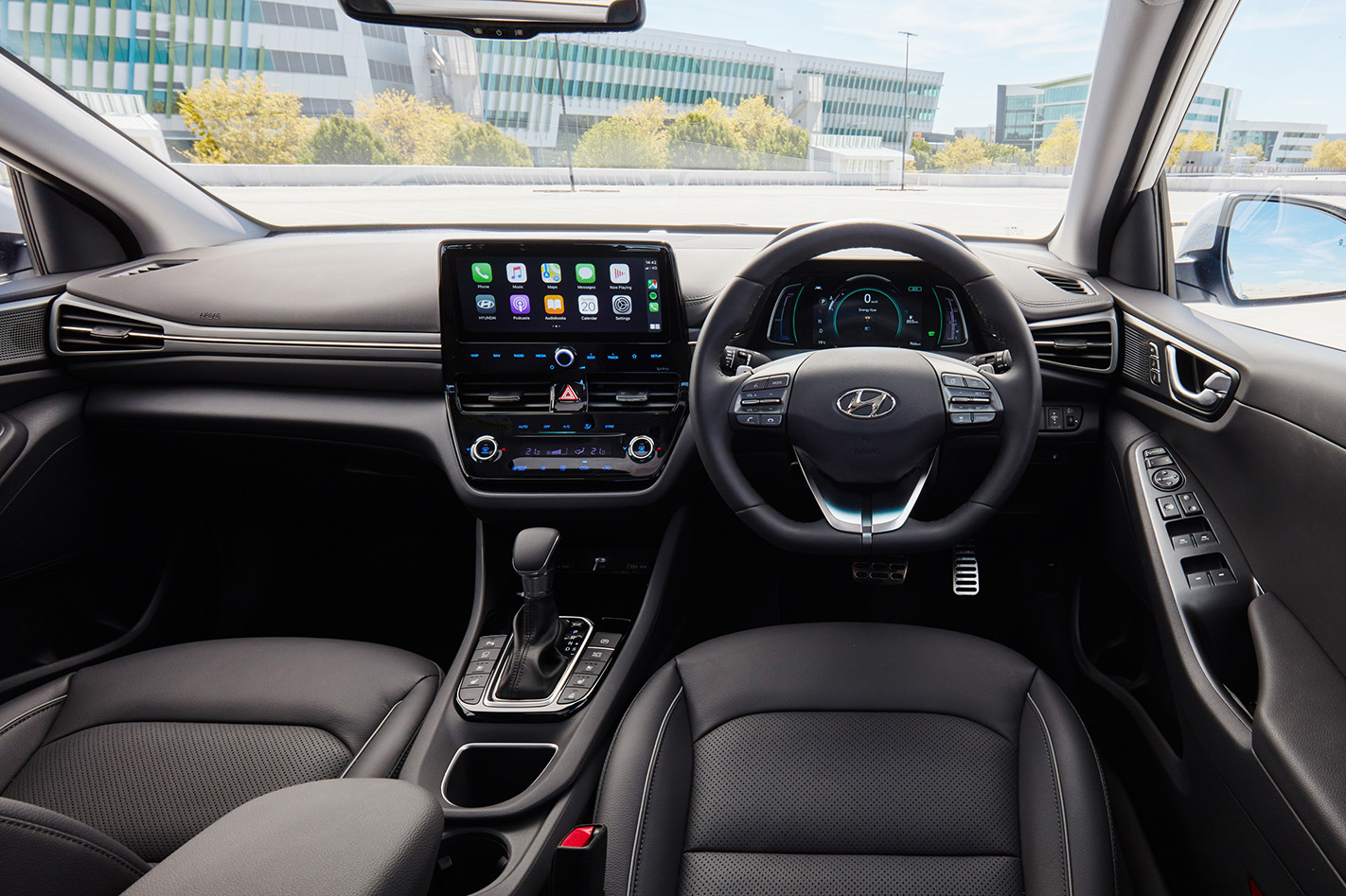
The IONIQ is a small hatch, comparable in overall dimensions to Hyundai’s i30 small hatch. Modestly sized, it nevertheless packs in a spacious feeling cabin for those in the front as well as those in the back, plus a 456 litre boot space accessed through a wide hatch opening. Rear air vents are another win, and something not many cars in the segment enjoy.
Added mod-cons for the Premium grade such as a wireless phone charging pad, dual-zone climate control, heated AND ventilated front seats, and panoramic sunroof certainly help justify its $5.2K price differential to the Elite, while its very aerodynamic-looking 17-inch alloys enhance the generally futuristic aura of Hyundai’s forward-leaning hatchback.
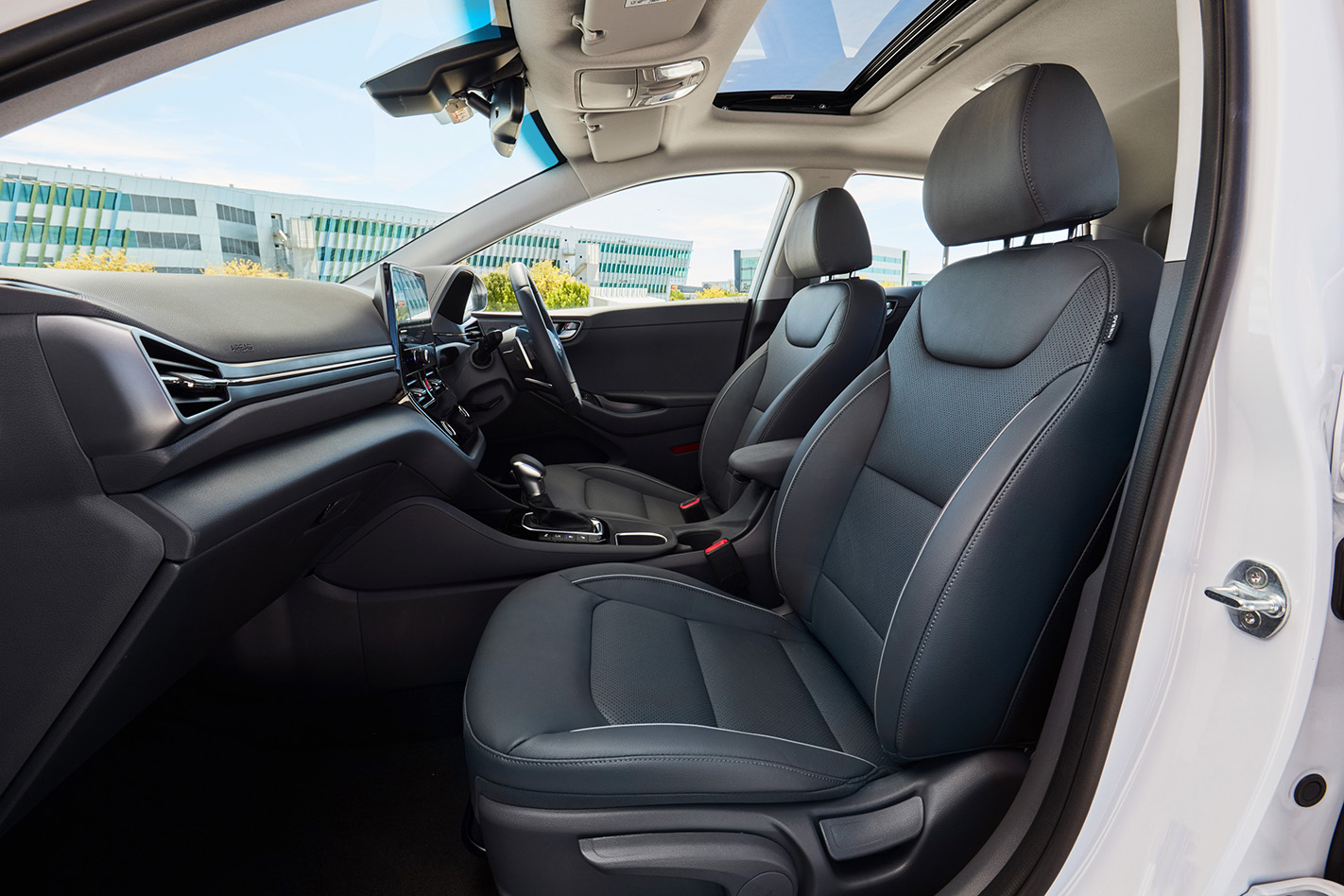
Cabin quality is about par for Hyundai’s other passenger car products, and generally in line with what you find in the i30/Elantra range. Decent plastics and upholstery, but not much wow factor.
Sadly, while the all-electric IONIQ EV gets a cool and futuristic looking centre console and push-button transmission selector, the humble hybrid makes do with a more conventional stick shift.
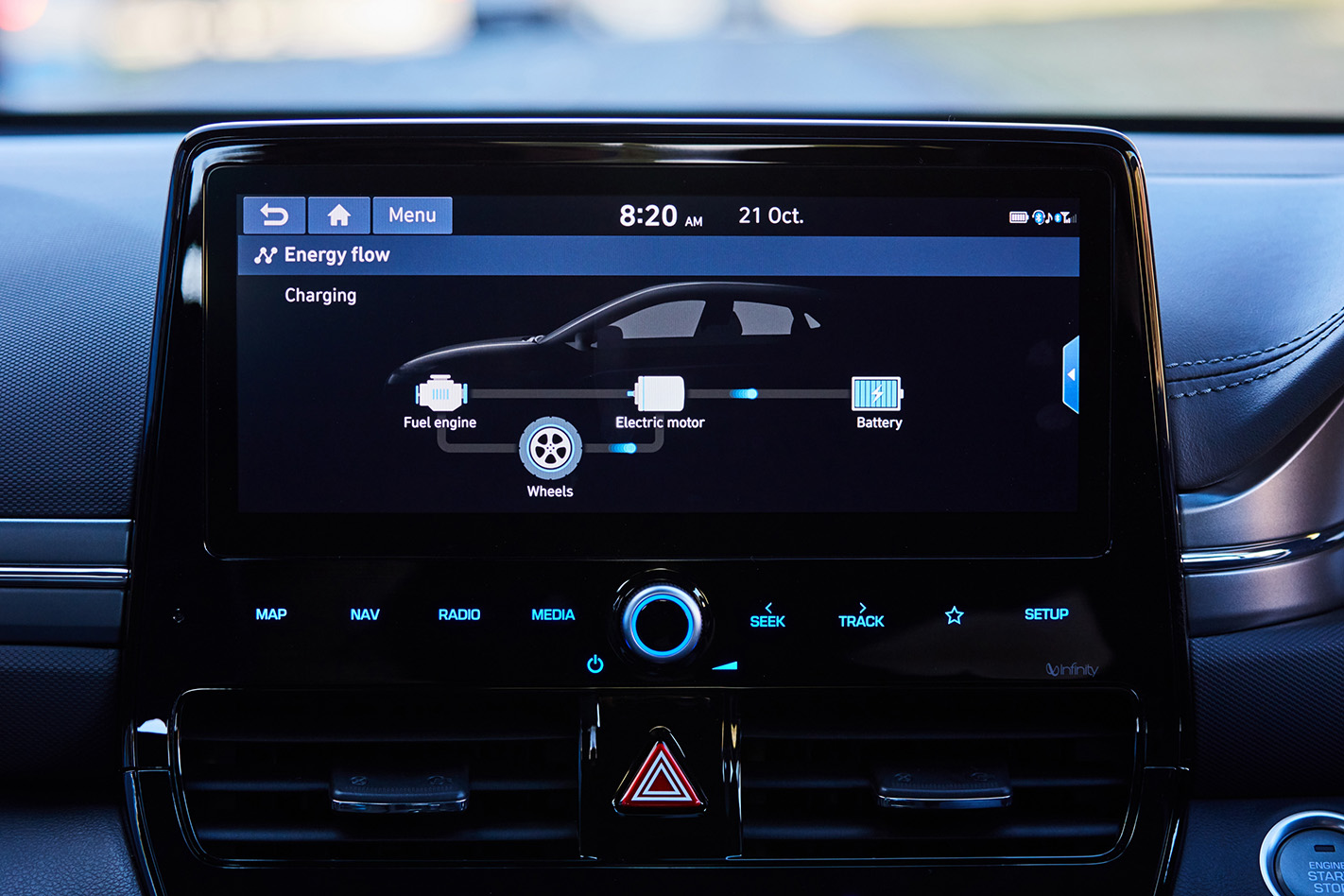
Is it worth the money?
If you’re looking to lower your environmental footprint but you’re either unsure whether an EV – or even a plug-in electric – is going to be compatible with your lifestyle, then the IONIQ Hybrid is a good way of treading more lightly while still having a car with genuine everyday practicality.
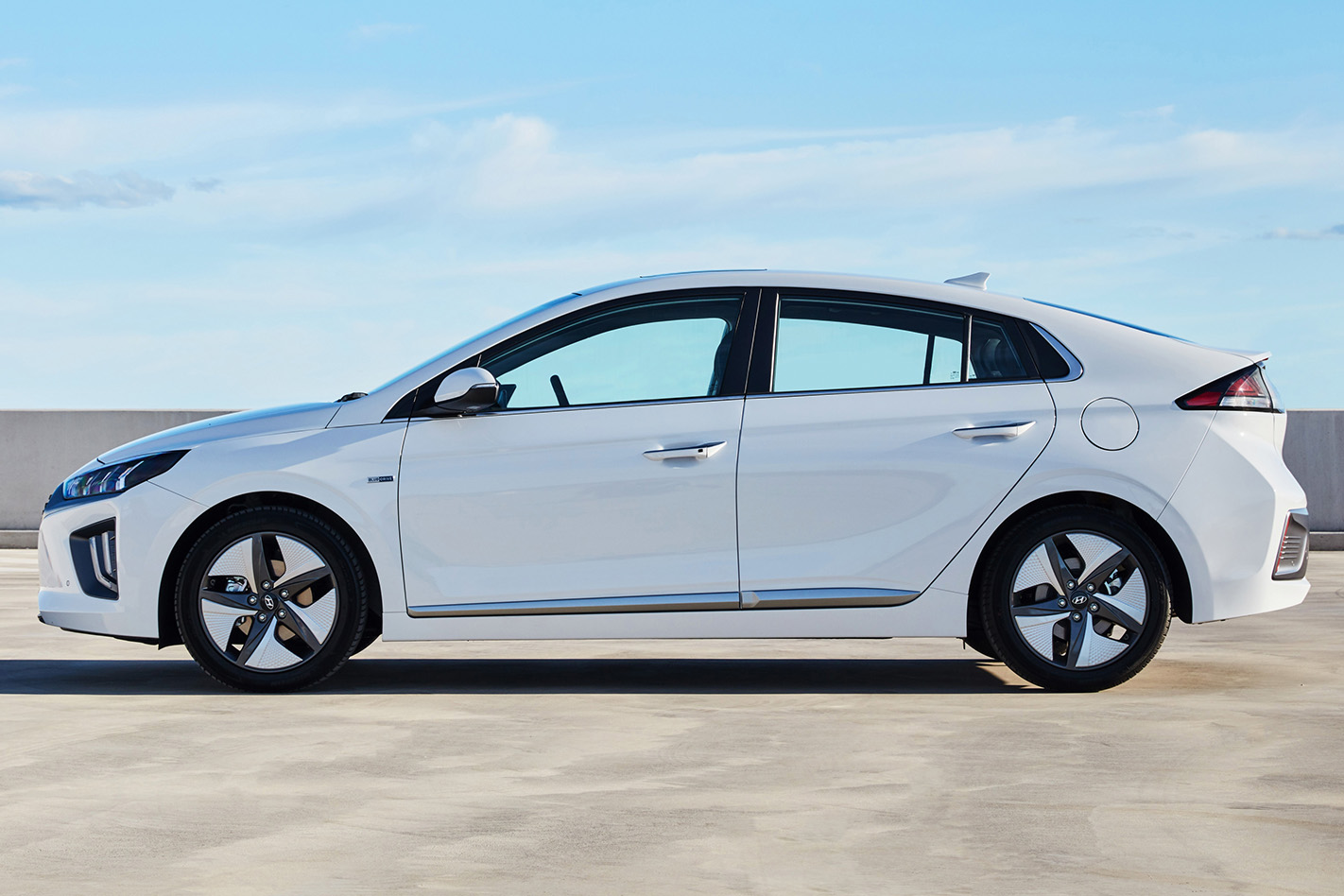
Relative to the Prius, its most logical competitor, the IONIQ Hybrid Premium shapes up as a reasonably good deal. You might not get as much equipment as the range-topping Prius, but it comes remarkably close and costs $4K less to go with the Hyundai. In that regard, value is strong. If you’re just shopping for a well-equipped hatchback, however, the IONIQ Hybrid is an expensive choice.
Pros: Easy to drive, spacious cabin, superb ride, great fuel economy, no charge cable complication, attractive facelift Cons: Powertrain can be slow to respond to sudden power demands, quite costly for a small hatch
Rating: 3.5/5
